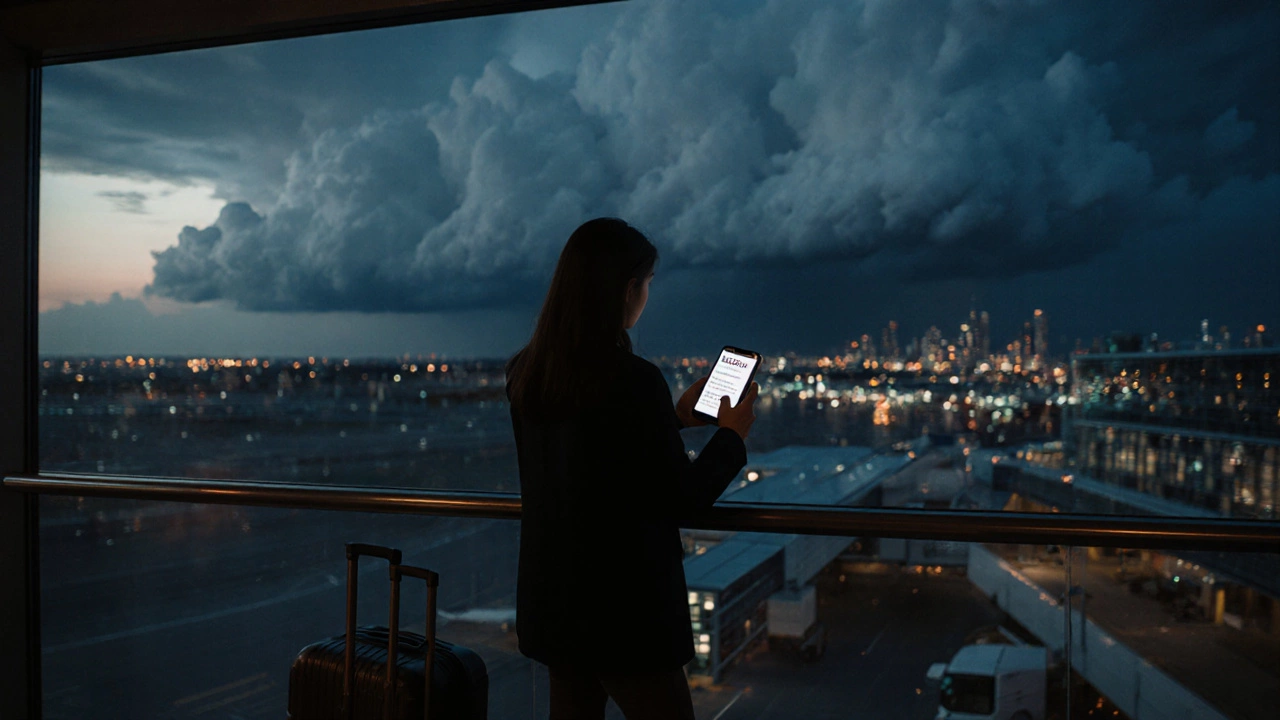Tour Booking Timeline: How Far Ahead to Reserve Sightseeing Tours
 Oct, 24 2025
Oct, 24 2025
Tour Booking Timeline Calculator
Calculate Your Booking Window
Recommended Booking Window
Your booking window:
When planning a holiday, a Sightseeing Tour is a guided experience that takes visitors to key attractions in a city or region. It may be a short walking loop, a multi‑day adventure, or a private custom itinerary. Knowing the right Tour Booking process of reserving a spot on that experience can save money and prevent disappointment.
Why Timing Matters for Tour Reservations
The moment you click "book now" affects three things: price, availability, and flexibility. High‑demand tours fill up fast, especially during holidays or local festivals. Booking early often locks in lower rates, while waiting too long can mean missing out or paying a premium.
Understanding Different Tour Types and Their Ideal Booking Windows
Not all tours follow the same schedule. Below is a quick snapshot of common categories and how far in advance you should aim to reserve them.
| Tour Type | Typical Recommended Advance | Flexibility | Price Trend |
|---|---|---|---|
| City Walking Tours (group) | 7‑14 days | High (many slots) | Stable or slight discount early |
| Adventure or Activity‑Heavy Tours (e.g., kayaking, hiking) | 14‑30 days | Medium (limited equipment) | Discounts up to 15% early |
| Private or Customized Guides | 30‑60 days | Low (needs personalized planning) | Higher price; early booking may secure guide |
| Day‑Trip Excursions from major hubs | 5‑10 days | High | Often stable |
These ranges are a rule of thumb. Your exact timing can shift based on season, group size, and special events.
Seasonal Factors: Peak vs. Off‑Peak
Peak Season the period when tourist demand spikes due to holidays, school breaks, or favorable weather generally requires the longest lead time. Booking 30‑60 days ahead is common for popular attractions in cities like Paris, Rome, or Sydney during summer.
Conversely, Off‑Peak Season times of the year when fewer travelers are on the move, often resulting in lower prices and more open slots can afford a shorter window-sometimes just 3‑5 days for city walks.

Group Size and Flexibility
Large groups (10+ people) put extra pressure on availability. Many operators impose a minimum booking window of 2‑3 weeks to coordinate guides, transportation, and equipment.
Group Size the total number of participants in a single reservation also influences the Refund Policy the conditions under which you can get money back if you cancel. Bigger groups often face stricter cancellation fees because the operator has already allocated resources.
Financial Considerations: Discounts, Cancellation Policies, and Insurance
Many tour companies offer an Advance Booking Discount a reduced price for reservations made well ahead of the tour date. These can range from 5% for a week‑early booking to 20% for a month‑early reservation.
It’s wise to read the Refund Policy the rules governing refunds, credits, or exchanges before you pay. Some operators allow a full refund up to 48 hours before departure, while others keep a non‑refundable deposit.
Adding Travel Insurance coverage that can reimburse you for cancelled tours due to illness, weather, or other unforeseen events is a small extra cost that can protect your budget, especially for high‑value private tours.

Last‑Minute Opportunities and Their Risks
If you’re flexible, Last‑Minute Deals discounted slots that become available as operators try to fill remaining capacity can be tempting. These offers often appear 24‑48 hours before the tour starts and can save up to 30%.
The downside? Availability is unpredictable, and you may be forced into a less desirable time slot. Weather forecasts can also impact outdoor tours; a sudden storm could cancel a hiking excursion, leaving you scrambling for a refund.
Local events-concerts, sporting matches, or festivals-can both boost demand and create unexpected openings if other attractions close for the day. Checking a city’s Local Events calendar of concerts, festivals, and public holidays calendar helps you anticipate spikes or gaps in availability.
Practical Checklist: When to Book Your Next Tour
- Identify the tour type and whether it’s group or private.
- Check the season: peak vs. off‑peak.
- Look for any advance‑booking discounts-note the cut‑off date.
- Read the refund policy and consider travel insurance.
- If you’re flexible, set alerts on booking platforms for last‑minute deals.
- Cross‑reference local events and weather forecasts for the chosen date.
- Finalize reservation at least the recommended lead time (see table above).
Following this timeline reduces the chance of paying extra, missing out, or dealing with last‑minute cancellations.
Key Takeaway
While there’s no one‑size‑fits‑all answer, a good rule of thumb is to book at least two weeks ahead for popular group tours, a month ahead for private experiences, and keep an eye on discounts if your schedule permits flexibility. Mastering this tour booking rhythm lets you travel smarter and spend less.
How far in advance should I book a city walking tour?
For most city walking tours, booking 7‑14 days ahead secures a spot and often lands a small discount. During peak tourist seasons, aim for the upper end of that range.
Do private tours require more lead time?
Yes. Private or fully customized tours usually need 30‑60 days notice so the guide can tailor the itinerary, arrange transport, and secure any special permits.
Can I get a refund if I cancel a booked tour?
Refund policies vary. Many operators offer a full refund up to 48 hours before departure, but some keep a non‑refundable deposit. Always read the fine print before paying.
Are last‑minute deals worth the risk?
If you’re flexible on dates and times, last‑minute deals can save up to 30%. The risk is limited availability and less control over the itinerary, so weigh the savings against potential inconvenience.
How do local events affect tour bookings?
Large events (festivals, sports finals) spike demand for nearby tours, often filling slots weeks in advance. Conversely, some attractions close for the day, creating openings for alternative experiences.